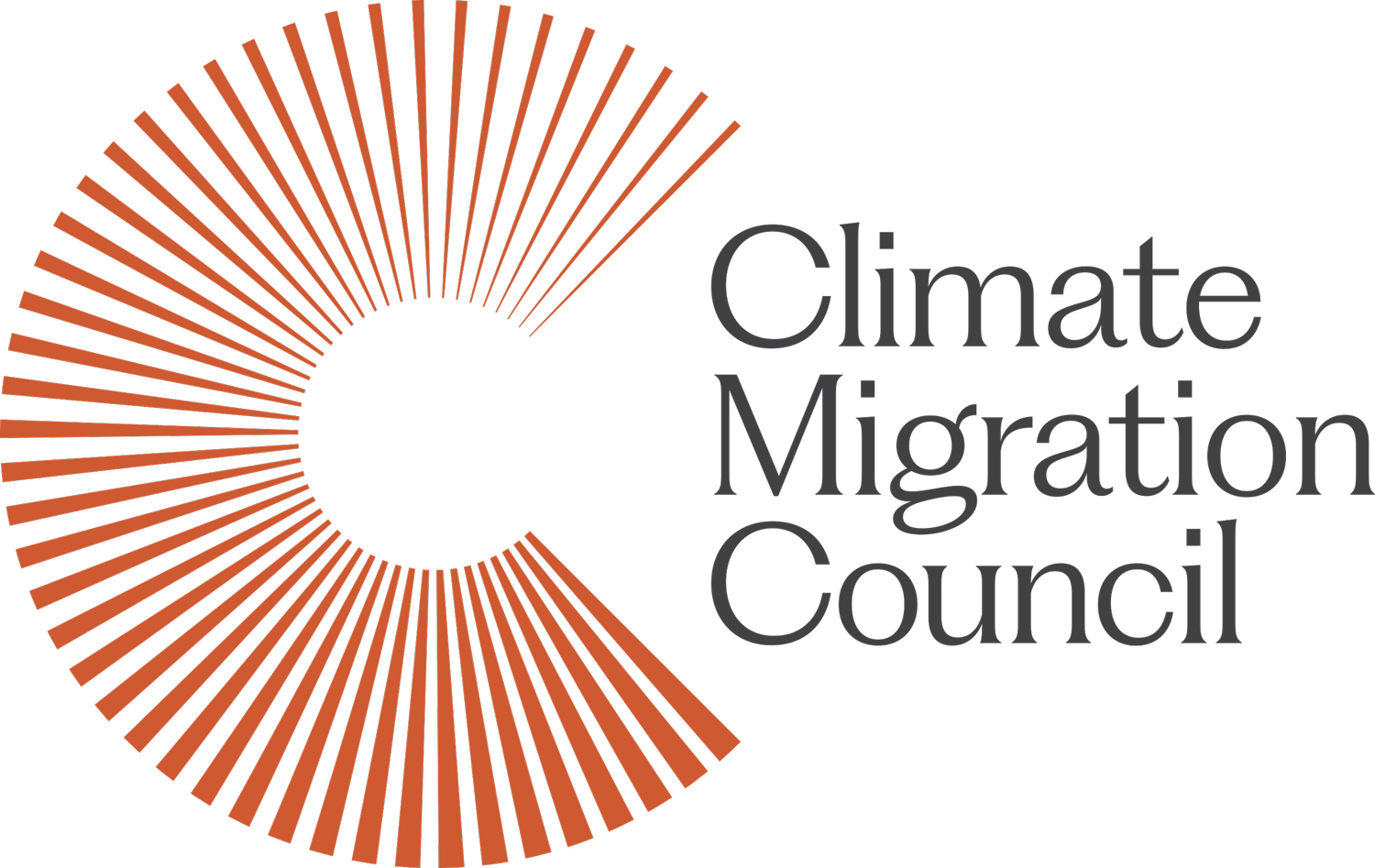Climate Migration Declaration
I hereby join the Climate Migration Council—a growing group of government, business, national security, and advocacy leaders who share a commitment to put people at the center of climate action and to accelerate global solutions to the climate crisis, migration, and climate migration.
We can no longer treat climate mitigation, climate adaptation, and climate migration as separate challenges.
I commit to use my platform to urge governments across the globe to develop and adopt equitable and inclusive solutions to address climate mobility at the local, national, regional, and international level. We know that the climate crisis acts as a powerful accelerant to migration patterns, and we need legal pathways, clear institutional leadership and new integrated strategies at all levels of governance that anticipate and safely accommodate the increasing numbers of people affected by the climate crisis.
Unprecedented heat resulting in climate crises such as droughts, rising seas, intensifying storms, and increasingly common wildfires, are a significant driver of human mobility across the globe, with 75% of new displacements in 2020 being caused by climate impacts. As the planet continues to warm and the impacts deepen and expand in the coming years, increasing numbers of people will be forced from their communities and will move within and across borders creating further pressure on an international system that is already confronting unprecedented levels of displaced people.
The international scientific community has rung the alarm. The 2022 IPCC WGII report highlights that slow-onset climate impacts alone may drive 216 million people from their homes by 2050. The World Bank estimates that nearly 70 percent of the global population will be urban by 2050, which will test already strained urban infrastructures. And we know these impacts will be experienced in every region of the world, especially the rapidly urbanizing global south.
Everyone deserves the opportunity to migrate with agency and dignity. And flexible migration systems, coupled with resilient and equitable investments in urban centers around the world, will ensure that forced migration is well managed and effectively harnessed. Our collective action is motivated by our concern for the best interest of people on the move and the sending, transit, and receiving communities that must welcome them.
As leaders in government, business, national security, labor, and advocacy communities, we witness the impacts of climate migration from different vantages. But all are unified in the belief that the international community must come together to develop strategies and financial instruments to better manage that migration, while simultaneously doubling down on our commitment to reduce the emissions that are overheating our planet and driving people from their homes in compliance with the 1,5 °C goal of the Paris Agreement.
In recent years, international mechanisms, such as the Sustainable Development Goals and the Global Compact for Migration, have issued calls to action highlighting the commitments necessary to ensure the safety and well-being of the hundreds of millions of climate-displaced people who will be affected by climate change.
As a member of the Climate Migration Council, I share this concern that we must invest in our shared future, and I commit to press leaders and multilateral organizations to:
Adopt and finance locally-driven adaptation and resilience strategies to sudden-onset and slow-onset disasters, adverse effects of climate change, and environmental degradation, that can address the root causes of climate migration.
Address the vulnerabilities of persons affected by sudden-onset and slow-onset natural disasters by partnering with all levels of government to ensure they have access to humanitarian assistance that meets their essential needs with full respect for their rights wherever they are, and by promoting sustainable outcomes.
Encourage local, state, regional, and international institutions to develop and partner in the implementation of coherent strategies and to propose norms and templates that support national and regional efforts to ensure the safety of climate-displaced individuals.
Expand and diversify the availability of pathways for safe, orderly, and regular migration.
